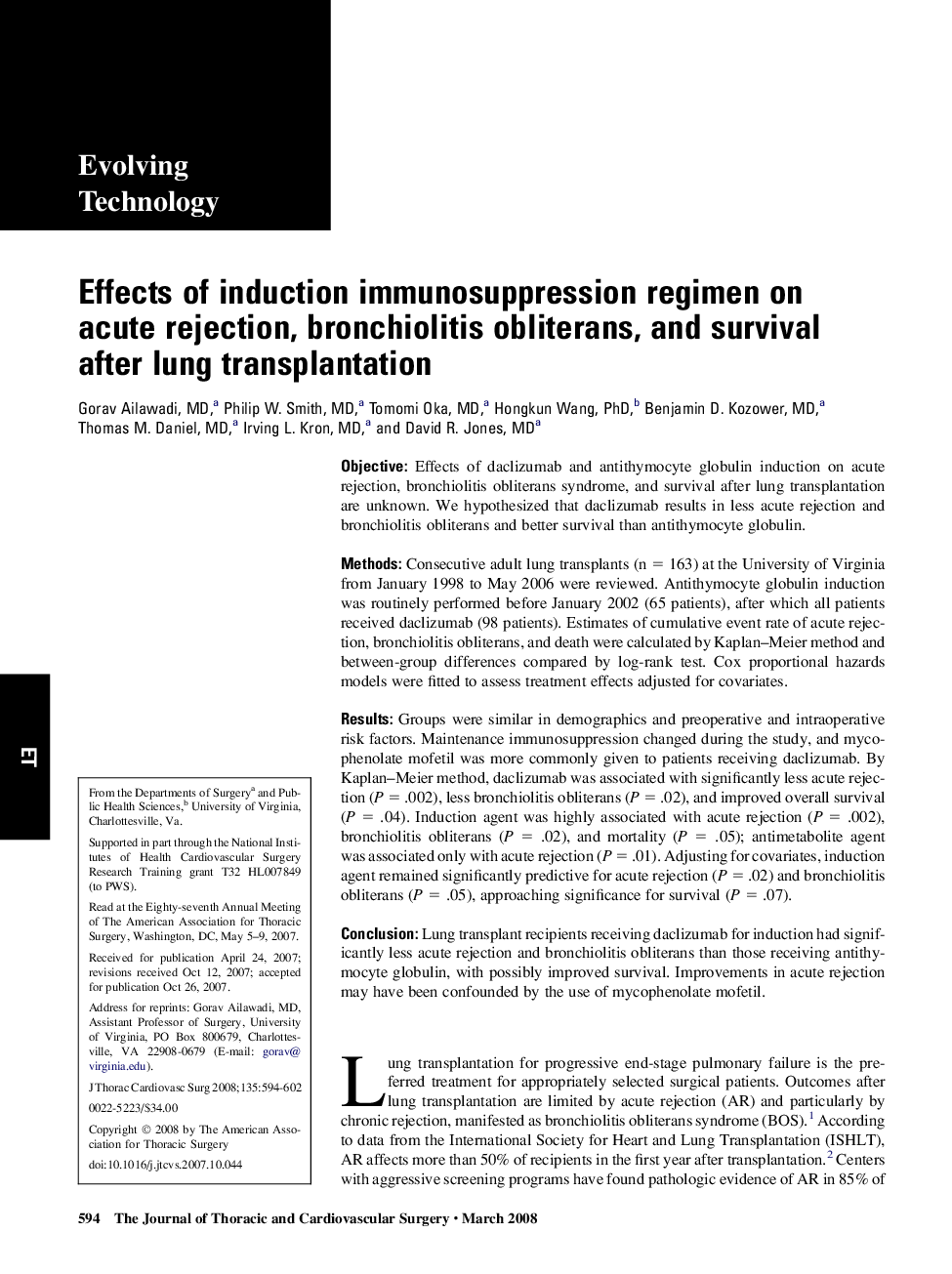| کد مقاله | کد نشریه | سال انتشار | مقاله انگلیسی | نسخه تمام متن |
|---|---|---|---|---|
| 2983545 | 1578688 | 2008 | 9 صفحه PDF | دانلود رایگان |

ObjectiveEffects of daclizumab and antithymocyte globulin induction on acute rejection, bronchiolitis obliterans syndrome, and survival after lung transplantation are unknown. We hypothesized that daclizumab results in less acute rejection and bronchiolitis obliterans and better survival than antithymocyte globulin.MethodsConsecutive adult lung transplants (n = 163) at the University of Virginia from January 1998 to May 2006 were reviewed. Antithymocyte globulin induction was routinely performed before January 2002 (65 patients), after which all patients received daclizumab (98 patients). Estimates of cumulative event rate of acute rejection, bronchiolitis obliterans, and death were calculated by Kaplan–Meier method and between-group differences compared by log-rank test. Cox proportional hazards models were fitted to assess treatment effects adjusted for covariates.ResultsGroups were similar in demographics and preoperative and intraoperative risk factors. Maintenance immunosuppression changed during the study, and mycophenolate mofetil was more commonly given to patients receiving daclizumab. By Kaplan–Meier method, daclizumab was associated with significantly less acute rejection (P = .002), less bronchiolitis obliterans (P = .02), and improved overall survival (P = .04). Induction agent was highly associated with acute rejection (P = .002), bronchiolitis obliterans (P = .02), and mortality (P = .05); antimetabolite agent was associated only with acute rejection (P = .01). Adjusting for covariates, induction agent remained significantly predictive for acute rejection (P = .02) and bronchiolitis obliterans (P = .05), approaching significance for survival (P = .07).ConclusionLung transplant recipients receiving daclizumab for induction had significantly less acute rejection and bronchiolitis obliterans than those receiving antithymocyte globulin, with possibly improved survival. Improvements in acute rejection may have been confounded by the use of mycophenolate mofetil.
Journal: The Journal of Thoracic and Cardiovascular Surgery - Volume 135, Issue 3, March 2008, Pages 594–602